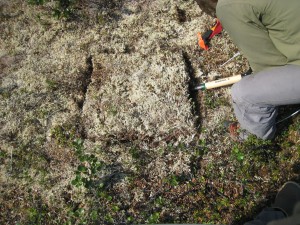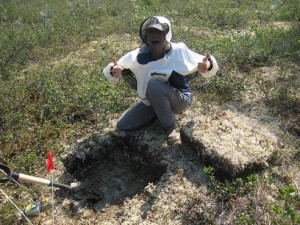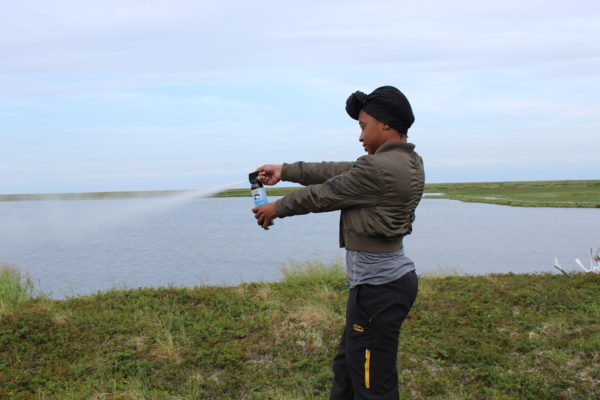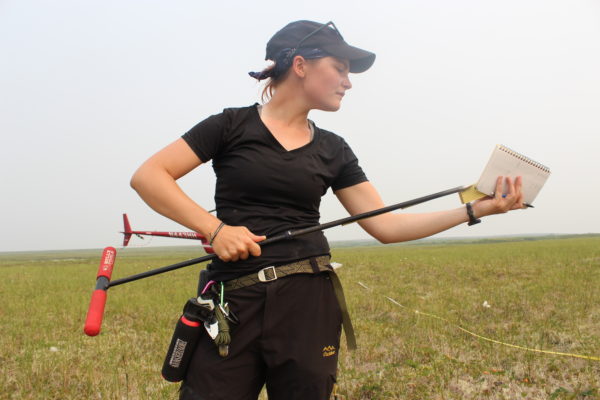Today marks a very important day at the Northeast Science Station. With the help of a whole crew, Ellen and I were able to set up one of the two components of our project: a moss/lichen transplant. We simply dug up small squares of moss and lichen and then switched their locations. We now have three sites of moss squares within lichen patches, three sites of lichen squares within moss patches and a total of six controls (3 moss, 3 lichen) where we moved squares, but left them in the same vegetation type. We will monitor the plots until we leave at the end of July and hopefully the experiment will continue into next year. We hope to determine whether vegetation is causing differences in carbon flux and the soil (such as thaw depth, nutrient content, temperature, and microbe composition), or if the soil is causing differences in vegetation.

We were initially quite worried that digging up 60cm squares of moss and lichen would be very difficult. Separating the pancake of vegetation and some soil from the lower levels of soil seemed very daunting. Luckily, the task proved to be far less difficult than expected. After sawing around the edge of the squares, we used a shovel to separate a layer about 6 inches thick from the underlying soil and then carried the squares between plots. They were rather cumbersome, but with three people on one square we had no problems moving them a few meters to their new locations. With six people we were done in less than two hours, which is not to say that it was easy work, exactly. It was hard work and very sweaty, as the temperature here is still in the mid-80’s.

To celebrate our success, I decided to be brave and join the others in a dip in the largest river in the world underlain by continuous permafrost (I am ridiculously afraid of anything that involves cold water or white water or jumping into water of an unknown temperature). Luckily, a week of hot weather meant that even I couldn’t make too big of a deal about the water temperature. In the future I will be sure to tell the story without mentioning just how warm it really was. This is the arctic, after all, and it will be more epic if I allow people to believe the assumptions that they have about the arctic, even in the summer.




Comment(1)-
Debbie Rodenhizer says
July 12, 2013 at 9:00 pmGreat post Heidi! Glad to hear the research is well underway. How long did you actually manage to stay in the water?